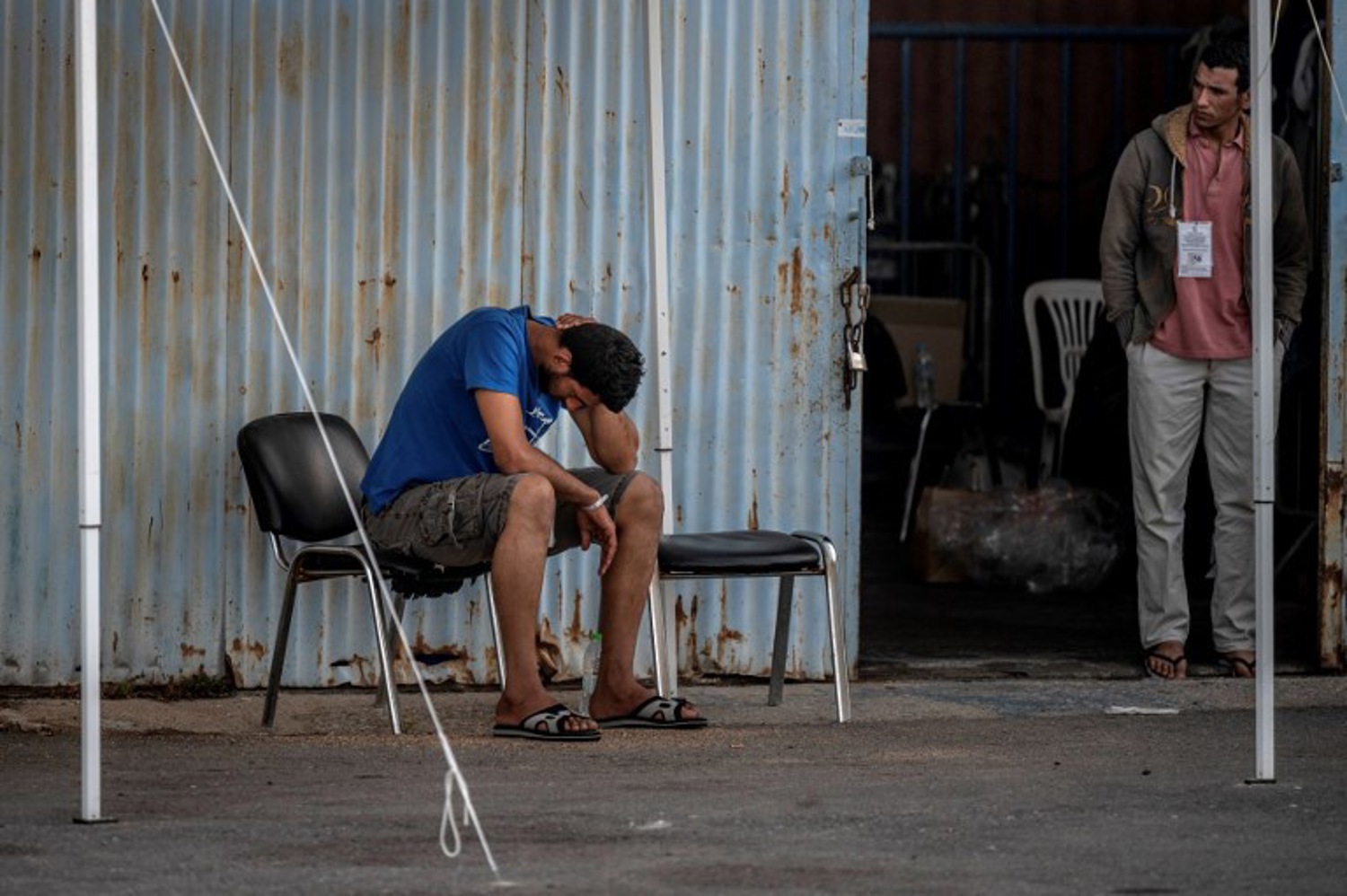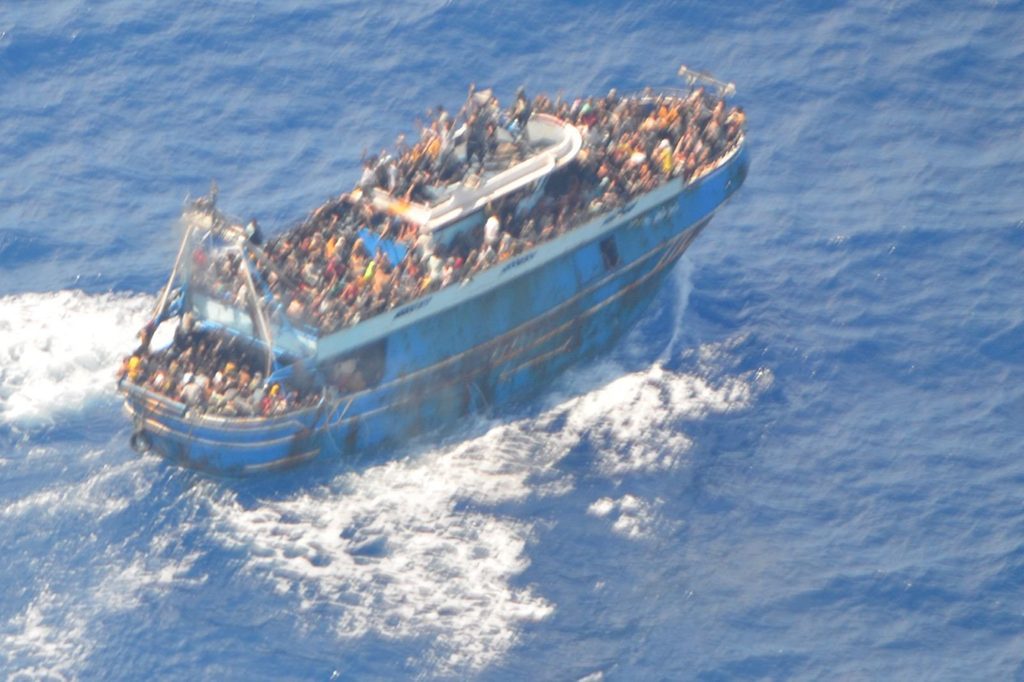The Hellenic Coast Guard has expanded its search for survivors from the boat which capsized off the Greek coast while carrying hundreds of migrants and refugees on Wednesday, but there is little hope of finding more survivors.
The tragedy, named the deadliest shipwreck off the Greek coast since 3 June 2016, when at least 320 people died or went missing, saw a fishing vessel with an estimated 500 to 700 people on board capsize in the Ionian Sea, near the deepest point of the Mediterranean Sea. Survivors say up to 100 children were on board when the vessel went down.
A total of 104 people survived the disaster, which was reportedly the result of mass panic breaking out on board, causing the overcrowded vessel to capsize about 50 nautical miles southwest of the Peloponnese peninsula. Authorities suspect that the boat sank very quickly, which is probably why the people who were under the deck could not escape.
At least 79 people have already been found dead, and while the Hellenic Coast Guard announced it has expanded search and rescue operations on Friday, Greek media have reported the search will end later in the day as there is little hope of finding any more survivors.
"It should be noted that when they were found, none of the rescued persons had any life-saving equipment (life jackets)," the Coast Guard said.
Smugglers arrested
On Thursday evening, nine men of Egyptian nationality, who were found among the survivors, were arrested in the port city of Kalamata, and are suspected of being the people smugglers responsible for the serious shipwreck. The Hellenic Coast Guard confirmed this news, adding they are aged between 20 and 40.
The men were arrested for irregularly entering the country, illegal trafficking of foreign nationals, criminal organisation association, causing a shipwreck, manslaughter by negligence and endangering lives.
The other survivors have been taken to a reception centre north of Athens, where they can be registered and apply for asylum.

Survivor of the shipwreck in Greece. Credit: Belga
The migrants were travelling on a fishing boat from the Libyan town of Tobruk towards Italy, according to Greek authorities. The coastguard shrugged off its responsibility, stating that the people on board had been offered help by several coastal authorities, but it was turned down.
"Continuous telephone calls from the Operations Chamber to the fishing vessel for assistance received a negative response. In the evening hours, we arrived confirming the existence of a large number of migrants on the outer deck of the vessel, but refusing any assistance and stating their wish to continue their voyage to Italy."
However, an investigation by Solomon showed that the passengers of the vessel had sent out a call for urgent help – one that was ignored.
Condemning failure
Greece will observe three days of national mourning as a result of the tragedy, the country's interim prime minister's office announced, however, people already decided for themselves how to respond to the disaster, holding protests across the country to demonstrate against the migration policy, which participants argued has failed people.
The EU's current policies have diverted asylum seekers to the deadliest migration route and have failed to establish legal and safe routes.
In response, the United Nations has called for safe escape routes following the serious shipwreck off the coast of Greece. "This is another example of the need for member states to come together to create orderly, safe routes for people forced to flee," spokesperson Stephane Dujarric said.
Meanwhile, the International Organisation for Migration (IOM), and UNHCR have called for urgent and decisive action to prevent further deaths at sea following the latest tragedy.
“It is clear, that the current approach to the Mediterranean is unworkable. Year after year, it continues to be the most dangerous migration route in the world, with the highest fatality rate," said Federico Soda, IOM Director for the Department of Emergencies.
Gillian Triggs, UNHCR Assistant High Commissioner for Protection, stressed that the EU must put safety and solidarity at the heart of its action in the Mediterranean.
Related News
- 'Dirty deal': EU Migration Pact brings eight years of political deadlock to a close
- EU migration pact 'disastrous' for human rights, Belgian NGOs warn
"In view of the increased movements of refugees and migrants in the Mediterranean, collective efforts, including greater coordination between all Mediterranean States, solidarity and responsibility-sharing, are lifesaving" adding this is reflected in the EU’s recent Pact on Migration and Asylum.
However, experts and NGOs have argued that this Pact will only make the already dangerous journey undertaken by thousands even more risky.
Since the tragedy, widespread demonstrations have been organised in Athens and across Greece. Thousands of protestors are demanding justice for the victims and are calling out the European Union's migration policies.

